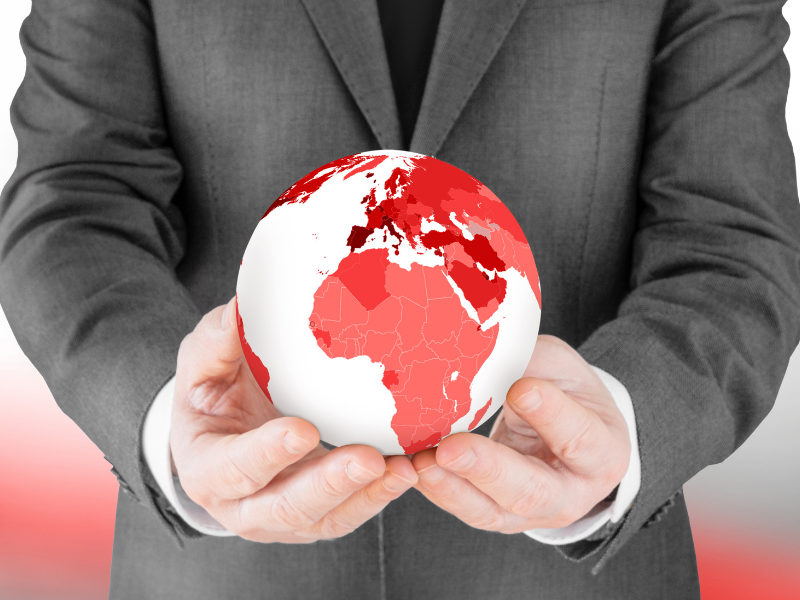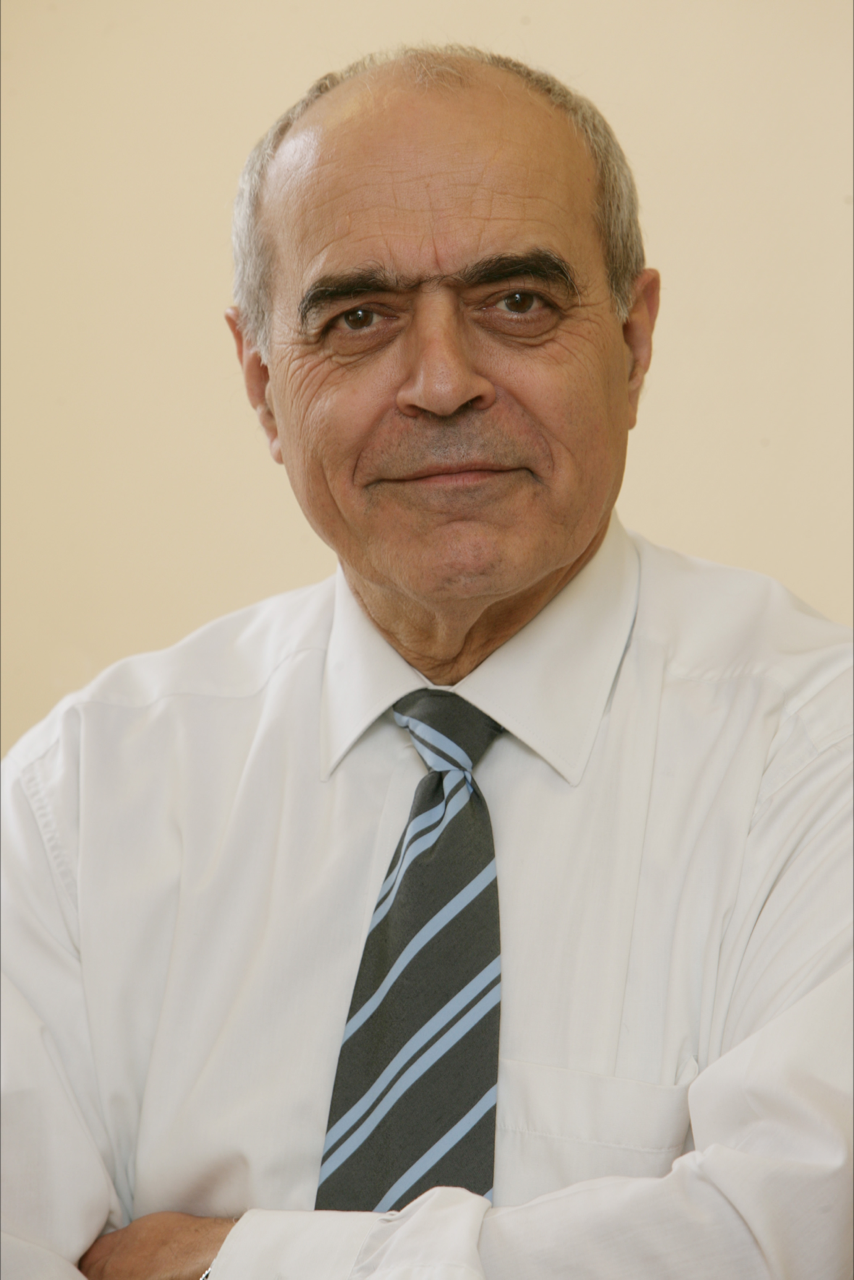A influential man’s view of the world
A great servant of the State, business leader and expert in economic intelligence, Alain Juillet talks to us about his international career and global competition.

Whether as a member of the military, a company manager, an intelligence officer or a professor in strategy and crisis management, Alain Juillet has worn many hats. Today Senior Advisor for the company Orrick Rambaud Martel, he is one of the world's leading experts in Economic Intelligence. He agreed to talk to us about his international career, which saw him working in no fewer than 64 countries, about global competition and the future of France.
An international career
How did you come to have such an international career?
My father was a diplomat and I spent much of my childhood abroad. I was in year 7 (= 6th grade) in Sao Paulo and I took my baccalaureate exam in 1959 in Barcelona. This childhood encouraged me to closely observe the people around me. Very early on, I clearly understood that the world was not limited to only France, French ideas and French education.
For example, one day when I was 10, along with my father we were having lunch with the BIT’s Bolivian correspondent when suddenly his son who was roughly my own age, ran in shouting "Daddy, the revolution’s started!" Before adding: "Here, I've brought your rifle".
My professional career really began with Pernod Ricard. I joined the company as an export manager for the Hispanic and African countries. I then worked my way up and managed overseas subsidiaries, in Spain, Brazil and Argentina etc., and undertook many negotiations under difficult circumstances in Russia and China among others.
What lessons did you learn from your career?
I can think of at least three, drawn from my personal experience.
- I set up a company in Franco's Spain. It was easy to do business there on condition that you didn’t talk about either the head of state or his system. There are things you simply shouldn't mention, shouldn't hear and shouldn't see. When you're abroad and you want to do business, that’s just something you have to accept, whatever your feelings about the local government and the way they do things.
- Another example concerns Saudi Arabia. When fighting, the Bedouins always observed a truce at nightfall. If a Bedouin wished to honour us and talk to us, he would invite us to his place generally after nightfall as this was the best time to become friends. This tradition is deeply rooted among the Saudis. Despite this, I've known very senior members of the French state to have refused to have dinner with the King or his ministers. As well as destroying any hope of a relationship, something which is central when dealing with people in the Middle East, this was sometimes seen as being offensive and severely disrupted certain negotiations. To succeed abroad, you need to know how to honour your contacts or at the very least to avoid causing them to lose face.
- A final example is Nigeria. During the building of a factory, my local partner was British. What struck me was his sheer intransigence concerning his lifestyle. At home, inside his house everything was "English": we drank red wine at 40° in the shade and on special occasions we had Plum pudding… On the other hand, outside the house he was very familiar with Nigerian customs and was able to skilfully negotiate his way around Lagos society. Regardless of your lifestyle, when you're abroad, the moment you step outside your house it's you who must take the initiative and make the effort, and not the other way around.
You are the leading French expert in Economic Intelligence. What is your key message to the rest of us?
To survive in the face of global competition, it has now become necessary to be highly skilled in cultural aspects and to have reliable information in order to be able to get ahead, to anticipate and react.
Culturally, in the world of Economic Intelligence, the British and the Americans have remained focused on economics and geopolitics. The Anglo-Saxons have a culture based on resources: the more you have, the more likely you are to succeed. Europeans are more people-centric. Unlike resources, people can succeed anywhere. It's the principle of the guerrilla movement versus the high-tech army. In such a situation, history shows that the guerrillas always win. Just watch Star Wars and you'll become an expert in Economic Intelligence.
What about the strengths and weaknesses of the French in this global competitive environment?
The trend towards multi-polarity has seen companies move away from the package culture. The same product, with the same advertising, in the same packaging for everyone is now a thing of the past. It's now all about adapting to local cultural characteristics.
In my view, France has two advantages in such a context: a very high capacity to adapt and the fact that it's a guerrilla country. It also has a major handicap: the French aren't able and aren’t willing to work as a group. When our competitors are hunting as a pack, we are trying to go it alone. We need to understand that even in Asterix’s "Gallic village" they had to cooperate to win.
What do you see as being the future of Europe?
As things currently stand, Europe particularly has a role to play in the confrontation between the United States and China, which is currently working in China's favour.
The Americans enjoy powerful military might, but they are losing wars... As a result, they’re gambling everything on digital technology and legal means, capitalising on the extra-territoriality of their laws.
For their part, the Chinese have time on their side and are not prepared to simply roll over. I'll wager that in the future they will also develop extra-territorial laws.
The dollar still gives the Americans an "exorbitant privilege". Consequently, their gigantic deficit is financed by the rest of the world. If another currency emerged following pressure from the emerging nations for example, the Americans would be obliged to assume at least part of this deficit themselves. This is the first sign of enormous difficulties for them.
As for Europe, it has shot itself in the foot by increasing from 21 to 28 countries. It has today become a federation of geo-economic interests based on the principle of unity in the face of its American and Chinese competitors. After "Brexit", it can now possibly refocus itself once again.
And where does all of this leave France?
For a country like France, playing a ‘mid-way’ role is only conceivable in a united Europe. If European disunity continues over the longer term, we will need to focus on our unique characteristics as Singapore once did or as the United Kingdom is likely to do shortly by creating a "tax haven" in the middle of Europe.
If we are to avoid becoming simply a giant Disneyland, I propose three things:
- Stop putting ourselves down;
- Learn to defend ourselves;
- Work together, for our common benefit.
Our current successes are based on the vision of De Gaulle and Pompidou. We are today living in France on programmes launched 50 years ago. What are they proposing to the French people today? Nothing…
I would like to see them regain hope, to stoke that inner light we have always had within us. To do so, we need a system of ideas and values. If all you have is figures within you, you've already lost in your negotiations, and the balance of power shifts against you, because simply losing your inner light means you do not reflect that of the person sat opposite you. Hence the need to be more open to others, to exchange ideas and communicate, and to embrace our differences, which are sources of enrichment to help us shine more brightly and to be more influential.
